Tom Waits – Small Change
(Elektra Records K53050)
Matrix No’s: A3/B3
Sleeve in Nr MINT- condition
– back cover has 2 tiny tears at the opening edge
Plain White Inner Sleeve
Vinyl in Nr MINT condition
Thomas Alan Waits (born December 7, 1949) is an American singer, songwriter, musician, composer, and actor. His music is characterized by his distinctive deep, gravelly singing voice and lyrics focusing on the underside of U.S. society. During the 1970s, he worked primarily in jazz, but since the 1980s his music has reflected greater influence from blues, vaudeville, and experimental genres.
Waits was born and raised in a middle-class family in California. Inspired by the work of Bob Dylan and the Beat Generation, as a teenager he began singing on the San Diego folk music scene. Relocating to Los Angeles, he worked as a songwriter before signing a recording contract with Asylum Records. His first albums, the jazz-oriented Closing Time (1973) and The Heart of Saturday Night (1974), reflected his lyrical interest in nightlife, poverty, and criminality. Repeatedly touring the U.S., Europe, and Japan, he attracted greater critical recognition and commercial success with Small Change (1976), which he followed with Blue Valentine (1978) and Heartattack and Vine (1980). He produced the soundtrack for Francis Ford Coppola’s 1981 film One from the Heart and subsequently made cameo appearances in several Coppola films. During the 1970s, he also had relationships with two prominent performers, Bette Midler and Rickie Lee Jones.
In the early 1980s, Waits married Kathleen Brennan, broke from his manager and record label, and moved to New York City. Under Brennan’s encouragement, he pursued a new, more experimental and eclectic musical aesthetic influenced by the work of Harry Partch and Captain Beefheart. This was reflected in a series of albums released by Island Records: Swordfishtrombones (1983), Rain Dogs (1985), and Franks Wild Years (1987). He continued appearing in film, taking a leading role in Jim Jarmusch’s Down by Law (1986). In the 1990s, his albums Bone Machine (1992), The Black Rider (1993), and Mule Variations (1999) earned him increasing critical acclaim and various Grammy Awards. In the late 1990s, he switched to the record label Anti-, who released Blood Money (2002), Alice (2002), Real Gone (2004), and Bad as Me (2011).
Waits’ albums have met with mixed commercial success in the U.S., although they have occasionally achieved gold status in other countries. He has a cult following and has influenced many singer-songwriters, despite having little radio or music video support. In 2011, Waits was inducted into the Rock and Roll Hall of Fame. He was included among the 2010 list of Rolling Stone‘s 100 Greatest Singers, as well as the 2015 list of Rolling Stone‘s 100 Greatest Songwriters of All Time.
Small Change is a studio album by Tom Waits, released in 1976 on Asylum Records. It was recorded in July 1976.
The album featured famed drummer Shelly Manne, and was, like Waits’ previous albums, heavily jazz-influenced, with a lyrical style that owed influence to Raymond Chandler and Charles Bukowski as well as a vocal delivery influenced by Louis Armstrong, Dr John and Howlin’ Wolf. The music for the most part consists of Waits’ hoarse, rough voice, set against a backdrop of piano, upright bass, drums and saxophone. Some tracks have a string section, whose sweet timbre is starkly contrasted to Waits’ voice.
“Tom Traubert’s Blues” opens the album. Jay S. Jacobs has described the song as a “stunning opener [which] sets the tone for what follows.” The refrain is based almost word by word on the 1890 Australian song, “Waltzing Matilda” by A.B. “Banjo” Paterson, although the tune is slightly different.
The origin of the song is somewhat ambiguous. The sub-title of the track “Four Sheets to the Wind in Copenhagen” seems to indicate that it is about a time that Waits spent in Copenhagen in 1976 while on a tour. There, he apparently met Danish singer Mathilde Bondo. Indeed, in a 1998 radio interview, she confirmed that she met Waits and that they spent a night on the town together. Waits himself described the song’s subject during a concert in Sydney Australia in March 1979: “Uh, well I met this girl named Matilda. And uh, I had a little too much to drink that night. This is about throwing up in a foreign country.” In an interview on NPR’s World Cafe, aired December 15, 2006, Waits stated that Tom Traubert was a “friend of a friend” who died in prison.
Bones Howe, the album’s producer, recalls when Waits first came to him with the song:
He said the most wonderful thing about writing that song. He went down and hung around on skid row in L.A. because he wanted to get stimulated for writing this material. He called me up and said, “I went down to skid row … I bought a pint of rye. In a brown paper bag.” I said, “Oh really?.” “Yeah – hunkered down, drank the pint of rye, went home, threw up, and wrote ‘Tom Traubert’s Blues’ […] Every guy down there … everyone I spoke to, a woman put him there.”
Howe was amazed when he first heard the song, and he’s still astonished by it. “I do a lot of seminars,” he says. “Occasionally I’ll do something for songwriters. They all say the same thing to me. ‘All the great lyrics are done.’ And I say, ‘I’m going to give you a lyric that you never heard before.”‘ Howe then says to his aspiring songwriters, “A battered old suitcase to a hotel someplace / And a wound that will never heal.” This particular Tom Waits lyric Howe considers to be “brilliant.” It’s “the work of an extremely talented lyricist, poet, whatever you want to say. That is brilliant, brilliant work. And he never mentions the person, but you see the person.”
The song has been recorded by Rod Stewart on two 1993 albums, Lead Vocalist and Unplugged…and Seated under the title “Tom Traubert’s Blues (Waltzing Matilda)”.
Album closer “I Can’t Wait to Get Off Work (And See My Baby on Montgomery Avenue)” has a simple musical arrangement, boasting only Waits’ voice and piano. The lyrics are about Waits’ first job at Napoleone Pizza House (still at 619 National City Blvd, National City, CA) in San Diego, which he began in 1965, at the age of 16.
Track listing
All songs written and composed by Tom Waits.
Side one
| No. | Title | Length | |
|---|---|---|---|
| 1. | “Tom Traubert’s Blues (Four Sheets to the Wind in Copenhagen)” | 6:39 | |
| 2. | “Step Right Up” | 5:43 | |
| 3. | “Jitterbug Boy (Sharing a Curbstone with Chuck E. Weiss, Robert Marchese, Paul Body and The Mug and Artie)” | 3:44 | |
| 4. | “I Wish I Was in New Orleans (In the Ninth Ward)” | 4:53 | |
| 5. | “The Piano Has Been Drinking (Not Me) (An Evening with Pete King)” | 3:40 |
Side two
| No. | Title | Length | |
|---|---|---|---|
| 1. | “Invitation to the Blues” | 5:24 | |
| 2. | “Pasties and a G-String (At the Two O’Clock Club)” | 2:32 | |
| 3. | “Bad Liver and a Broken Heart (In Lowell)” | 4:50 | |
| 4. | “The One That Got Away” | 4:07 | |
| 5. | “Small Change (Got Rained on with His Own .38)” | 5:07 | |
| 6. | “I Can’t Wait to Get Off Work (And See My Baby on Montgomery Avenue)” | 3:17 | |
|
Total length:
|
49:28 | ||
Personnel
- Harry Bluestone – violin, concertmaster strings
- Jim Hughart – bass
- Ed Lustgarten – cello, orchestra manager strings
- Shelly Manne – drums
- Lew Tabackin – tenor saxophone
- Tom Waits – vocals, piano
- Jerry Yester – arranger & conductor of string section


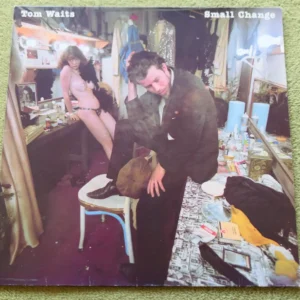
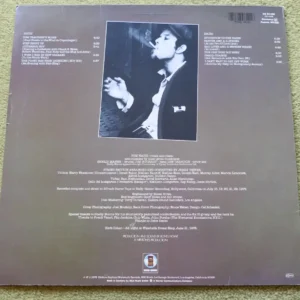
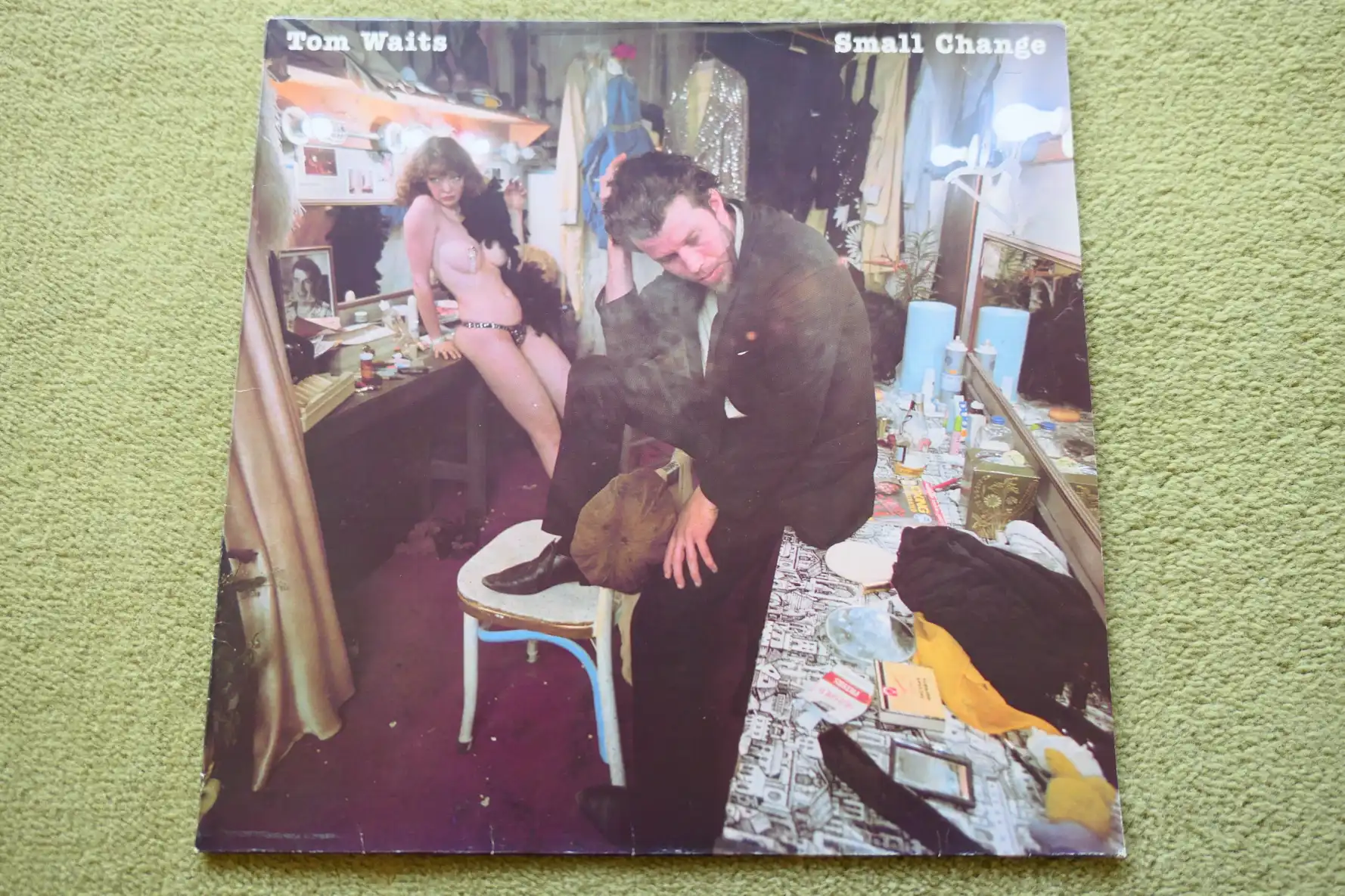
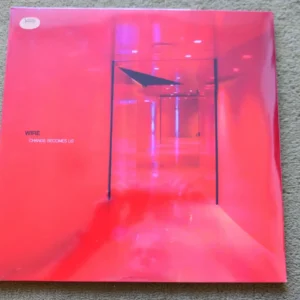
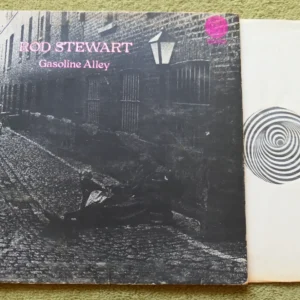
Reviews
There are no reviews yet.